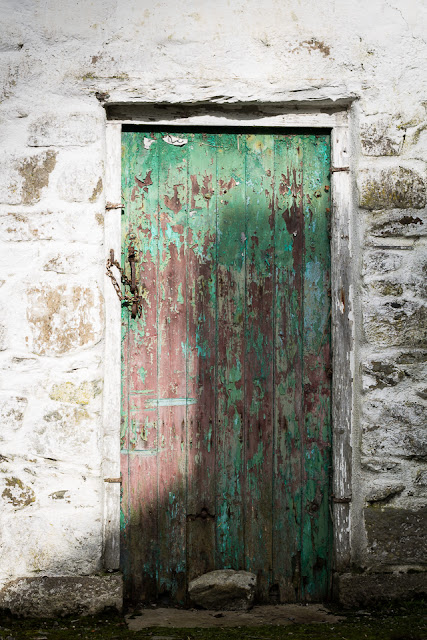Sunday, 13 March 2016
A small, sad story about emigration
Visiting the Ulster American Folk Park near Omagh makes me think about one family tale of emigration that I always find moving.
My great-great-great-grandfather, John McCrea, was 70 years old in 1845, when the potato crop first failed. He and his wife Rebecca had been running a good business, transporting produce around their home area of north Fermanagh and even as far afield as Derry. Their children worked in the business too.
Despite their industry and the business's success, times had been hard for the last few years because of the practice of rack-renting - every time they made improvements to their premises, the landlord raised the rent. It was barely affordable now.
The first signs of the devastating Famine years to follow were the last straw for John and Rebecca. What money they could gather was invested in passage to Canada for themselves and their children. Canada was the cheapest destination for emigration in these years, and it had the added attraction of help from the British Government in transporting people to settle further into the interior of the country.
Their son Edward, my great-great-grandfather, was twenty-one years old in 1845 and due to travel with the party. Shortly before the departure date, however, he was involved in a rowdy scuffle in the family goods yard. The agent arrived to claim the rent. There was an altercation. Edward's brother shouted something about a gun - a bluff. The agent, frightened, produced his own gun and fired haphazardly. A stray bullet caught Edward's ear, which bled profusely.
It was decided that Edward would delay his departure until the wound had healed. He went to stay with his married sister, a welcome addition to the small household at this troubled time.
He waited for news of the family's arrival in Canada, saving to book his own journey.
Canada was a popular choice for emigrants for many reasons, not least the affordability of the passage. But the low fare often resulted in very low standards of health and safety on board ship. Accommodation was overcrowded. Food and water ran out quickly. Dysentery and fever were rife. The healthy lay amongst the sick, all of them without light or air or help. Rebecca and John and their family were on such a ship.
The emigrant ships sailed up the St Lawrence waterway, heading for destinations in Quebec and Montreal. First, however, they stopped at Grosse Ile, a pretty island which operated as a quarantine station, about thirty miles from Quebec.
John and Rebecca, both suffering from fever after the appalling voyage, were supported from the ship by their children. The elderly, ailing couple were quickly identified as ill by the Canadian authorities and taken to the immigrant hospital.
Two weeks later, in their separate, isolated wards, they both died. All they had seen of their new life was a dockside and the steep avenue up to the hospital.
Edward was devastated when the news eventually reached him. His siblings, with no remaining options, continued on into Canada. Edward chose to stay in Fermanagh after all. How he survived the years of the famine and went on to have his own family is another story.
Another story too is what happened in Grosse Ile just two years later. My elderly relatives were comparatively fortunate. By 1847, the flood of emigrant ships from Ireland was arriving with dozens of cases of typhus on board, swamping the small hospital. Forty to fifty people were dying each day. The authorities did their best, working in tents and sheds to tend the emaciated, tatter-clad Irish arrivals. In 1847, 100,000 people left Ireland for Canada. 42,000 of them died on the journey or within days of landing. In 1909, a memorial was erected to these people on the highest point of Grosse Ile.
Labels:
family history,
famine,
Ireland
Subscribe to:
Post Comments (Atom)












No comments:
Post a Comment